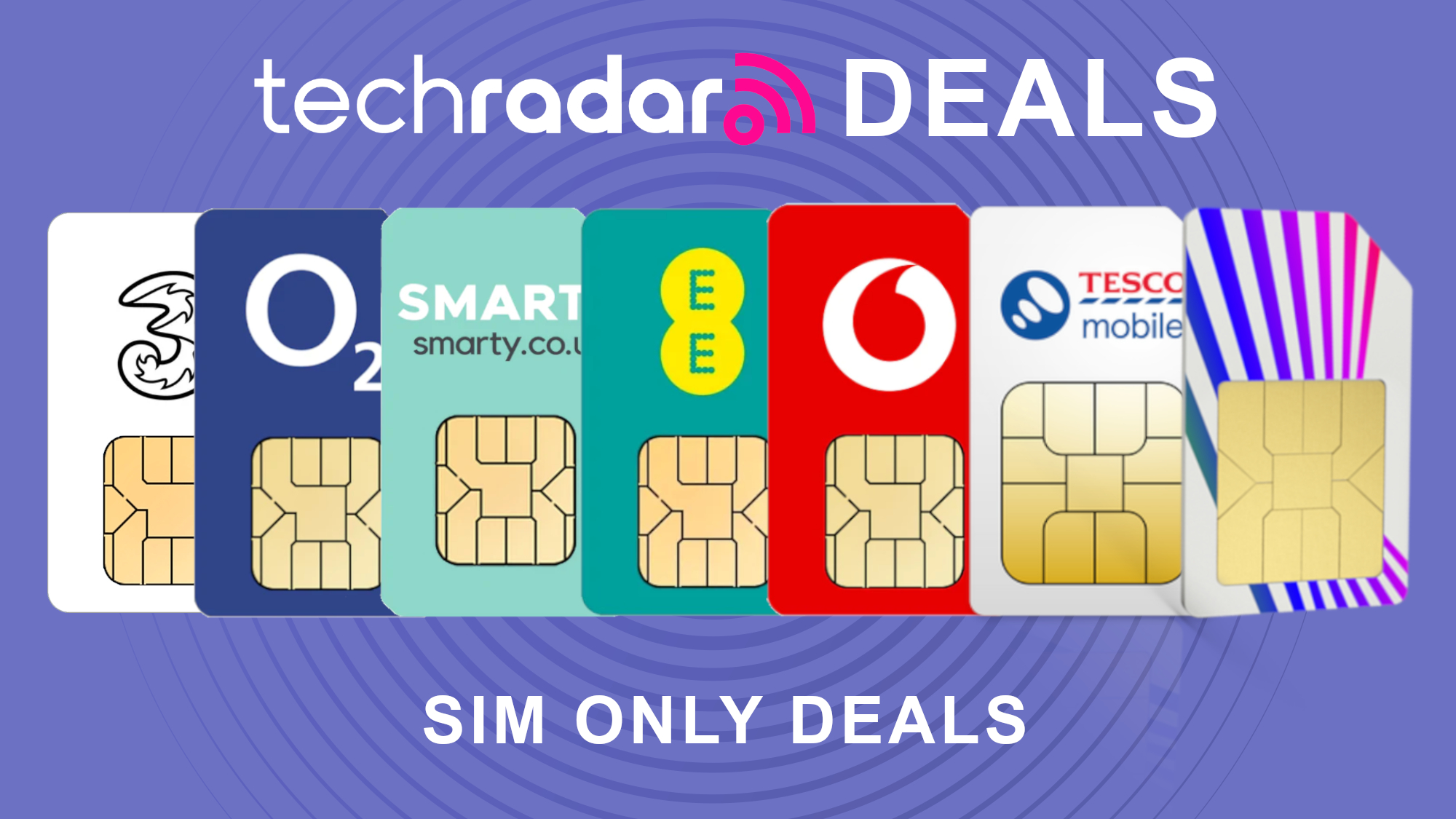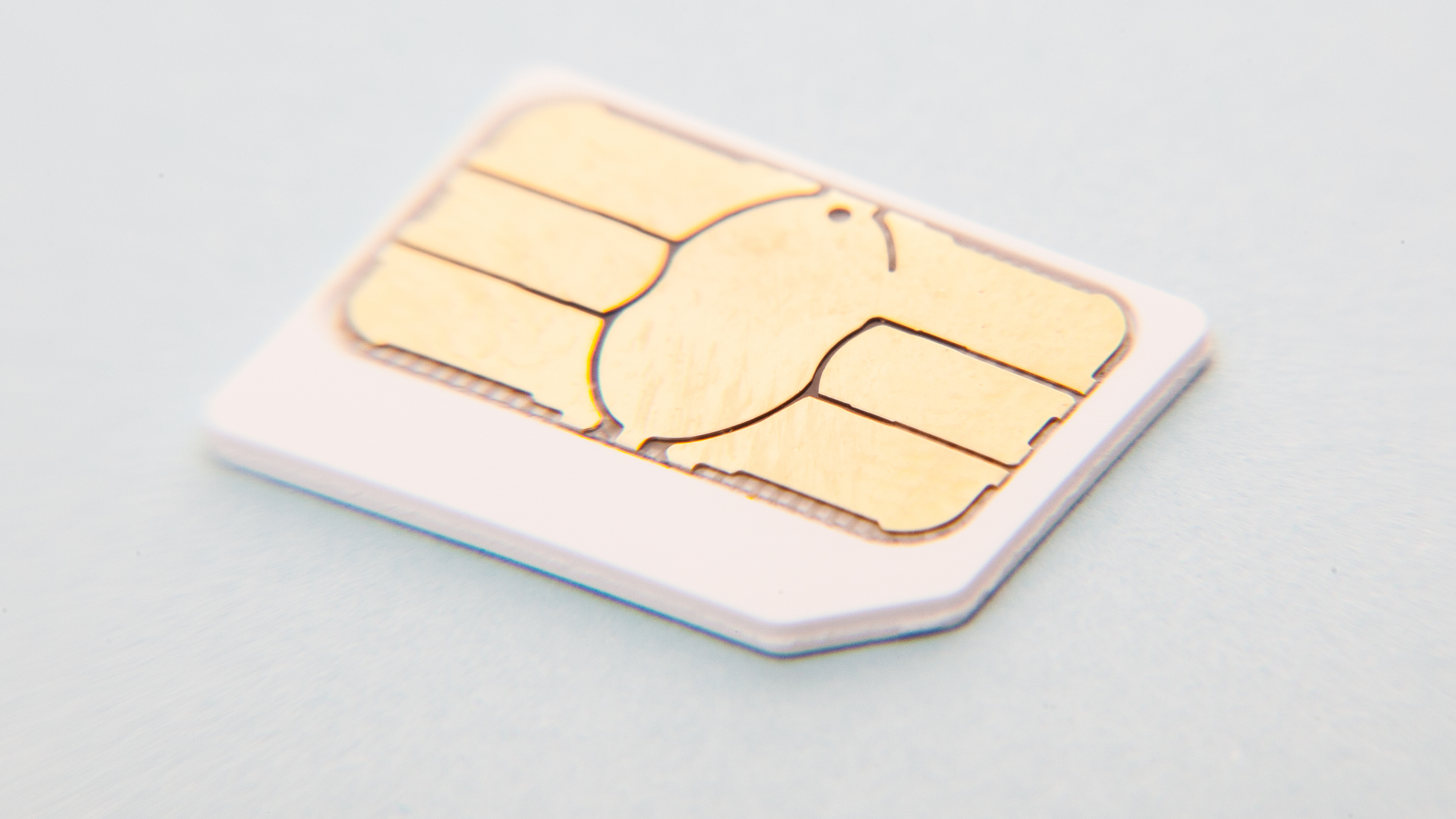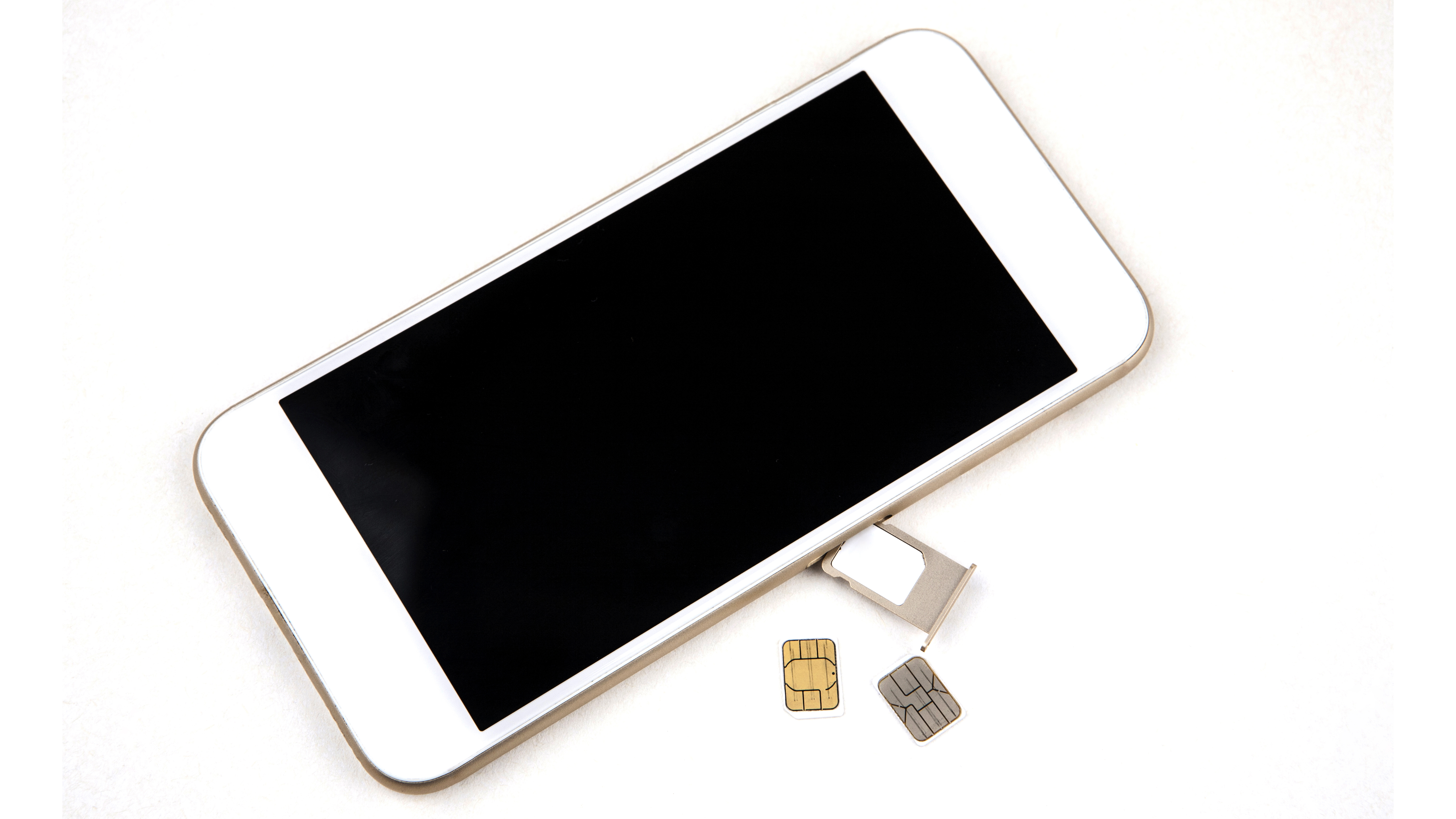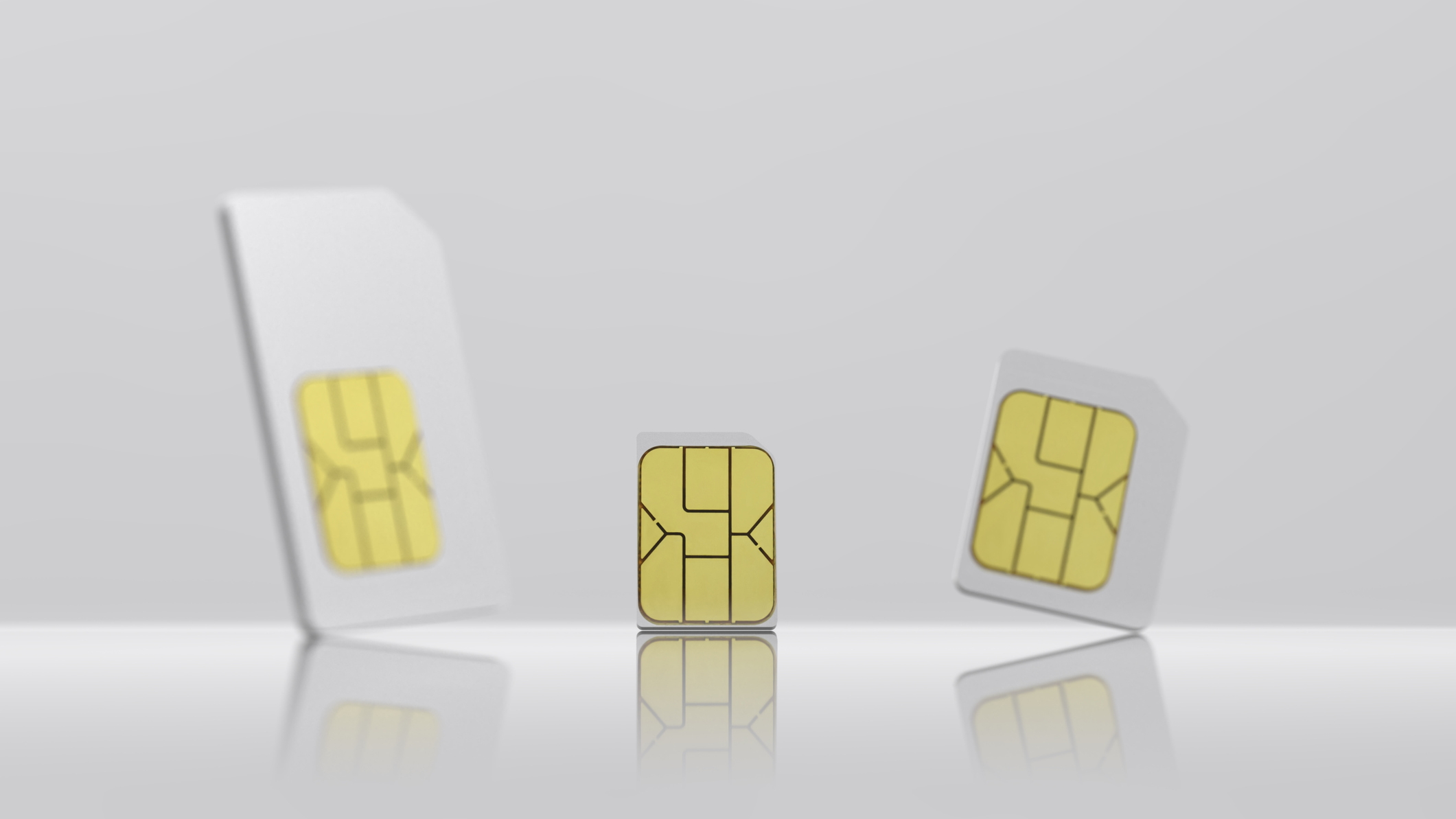
So here's the thing: you don't have to replace your phone if your current contract has run out. If you're happy with the phone you have and don't want to spend more on a new contract, then you can save a bit by going the SIM-only route.
This means you only get a new SIM (be it physical or an eSIM) and no new phone, often not only at a cheaper price but also throwing in more data to boot. Plus, going SIM-only means you get additional flexibility if you want to suddenly swap your smartphone. And SIM-only contracts are becoming increasingly popular, especially thanks to the rise of cheap-plan providers such as SMARTY, VOXI, and GiffGaff.
To help you navigate such contracts, we got a rundown of the latest SIM-only offers in our SIM-only deals comparison table below. From there you can find the best deal that suits you, with offers available from the big four phone providers, and from smaller and cheaper brands like VOXI, SMARTY, Lebara, and GiffGaff.
Looking to pair a great SIM-only deal with a new device? You can also check out our guide to all the best phone deals right now, including the lowest prices on many of the best phones available today.
The latest SIM-only offers in the UK
With SIM-only deals increasing in popularity, 5G included in every deal, and a fresh divide emerging between the big four providers and their smaller, cheaper competition, the value opportunities from grabbing yourself a great SIM-only deal have never been better.
Increasingly, SIM-only offer providers can now accommodate for increased flexibility, reduced cost, and improved benefits. The big four networks now, more often than not, offer free access to streaming services, reward schemes, and other discounts with their SIM-only plans, whereas smaller networks are able to offer high data packages for a much-reduced price for those not in need of extras and perks.
If you already know you want a SIM plan and even know the data cap, network and more, then this should be easy, Simply use our SIM comparison chart above to find your perfect option.
Want to know what a SIM is and what it stores, or just not sure what you really need? That's where we step in with a complete guide below to get you started.
How does a SIM only deal work?

What does a SIM card do and what's stored on one?
A SIM card has a couple of purposes. Most importantly, it is used to identify the phone contract you've signed up for, fulfilling your data, calls, and texts that are included in your plan.
A SIM plan also provides two numbers with overly complicated names - the ICCID serial number, International Mobile Subscriber Identity number (IMSI) and the Mobile Subscriber Integrated Services Digital Network number (MSISDN), the latter of which is the user's telephone number.
In other words, a SIM card identifies your phone number and the SIM plan that you've subscribed to. You can read our full SIM card storage guide to find out more.
What does SIM stand for?
As is usual for popular pieces of tech, SIM stands for something that sounds complicated but is quite simple. SIM stands for 'Subscriber Identity Module' - another way of saying a device to identify your phone deal.
Why get a SIM only deal?
There are a lot of benefits to choosing a SIM tariff over a phone contract. While it can be slightly more complicated, especially if you need a new phone as well, its flexibility, affordability, and other factors help make it an obvious choice.
Affordability:
When you break down the costs of a phone contract, you realise that you're paying a lot more than simply buying the phone and SIM separately. A SIM plan alone will be much cheaper, even if you're having to buy a new phone with it.
Flexibility:
A phone contract will always tie you in for a minimum of two years so you can pay off your costs. However, a SIM plan can be anywhere from just 1 month long, allowing you to sell off your phone if it breaks or you decide you want something new.
Variety:
With such a wide variety of prices, data caps and networks, choosing a SIM plan allows you to customise your plan to the exact factors you want. This is especially helpful if you have your eyes on a network that doesn't sell phone contracts.
Sustainability:
Phone contracts end and if you decide you're happy with your handset, why hand it in for something new? If you're more than happy with the handset you have, hold on to it and get a cheaper SIM, allowing you to enjoy that handset for longer.
Picking the right SIM:

There's a surprisingly large amount of factors to consider when choosing a SIM plan, and while there aren't really any bad choices, it's about working out what factors suit your needs.
How much data do you need?
While almost every single SIM plan will automatically offer unlimited texts and calls, data caps can range massively from 500Mb all the way through to unlimited data SIM only deals.
There are plenty of options in excess of 30GB, but the large majority of people are unlikely to need this much, usually using under 10GB each month. The easiest way to decide how much data you need is simply to consider how much you'd previously used on older contracts.
First time you're getting a SIM? These are how the data caps line up with usage:
- 1GB: A limited option that won't be enough for most. If you rarely use the internet and occasionally need to use Google Maps or check the internet, this can be a cheap option.
- 5GB-10GB: This is the range most people will fit into. It allows for pretty intensive usage of social media, Maps and internet searches without fear of running over. While you can do a bit of streaming, don't push it and avoid HD!
- 10GB-50GB: If you like to stream when you're out and about, use maps on a daily basis and generally have a data intensive lifestyle, this will likely be a cap you should be looking in. Keeping under 50GB can keep your costs at a still affordable point.
- 50-100GB: At this point, you're going to have to be a real data drainer for this to be necessary. Downloading apps on the go, HD streaming, big downloads and working from home.
- 100GB-unlimited: Unlimited data plans have significantly come down in price over the years and can even be a legitimate alternative solution to having full broadband if you live somewhere with an excellent 4G/5G connection. However, for most people, it's not going to be necessary.
What contract lengths are available?
There are four contract lengths you might see with SIM-only deals, 1-month rolling, 12 months, 18 and 24. Realistically, 18-month contracts are pretty rare so the other three are the ones you'll see more.
24-month contracts tend to be the cheapest per month on big data plans but you're tied in for a while. 1-month rolling plans from the likes of GiffGaff, VOXI, and Smarty are surprisingly affordable but you won't find them with the four main networks.
12-month contracts are the tariffs that come up most often and, for the majority of people, will be the best choice.
| Header Cell - Column 0 | EE | O2 | Three | Vodafone | Voxi | Giffgaff | Smarty | Lebara | iD Mobile | Sky |
|---|---|---|---|---|---|---|---|---|---|---|
| Contract lengths: | 1,12, or 24 months | 1, 12 or 24 months | 1, 12 or 24 months | 1, 12 or 24 months | 1-month rolling | 1 or 18-months | 1-month rolling | 1 or 12-months | 1,12, or 24-months | 12 months |
| 5G enabled? | Yes | Yes | Yes | Yes | Yes | Yes | No | No | No | Yes |
| Unlimited calls and texts? | Yes | Yes | Yes | Yes | Yes | Yes | Yes | On select plans | On select plans | Yes |
What SIM card size do I need?
SIM cards these days fall into three sizes and these are: Standard, Micro and Nano, descending in size. If you're ordering your SIM-only deal, you'll likely find it arrives in a credit card-sized piece of plastic, out of which can you pop your microchip SIM.
A standard SIM measures 25 x 15mm and was used in phones before 2010 and a few after that.
The Micro SIM stands at 15 x 12 mm and was used in phones from 2010 and you'll still find some phones work with these now.
The Nano SIM, introduced in 2012, measures in at 12.3x 8.8mm and is the most commonly used SIM in phones.
The Combi SIM might be what you get sent by a SIM-only provider, as it contains all three sizes, and you push out the one that fits your phone. This is ideal as you don't need to know your size prior to this as you can hold it up to the SIM tray and see.
Should you, for whatever reason, need to decrease the size of your SIM card, but do not have a combi SIM, you can go in and speak to an advisor for your network provider who, more often than not, should be able to provide a free replacement with your same phone number which will be an appropriate size.
Should I choose an eSIM or a physical SIM card?
Physical SIM cards are still considered the 'norm' however this doesn't mean an eSIM wouldn't be a great solution for you. eSIMs take away the physical risk of damage or loss from owning a smartphone as they are stored digitally and transferred to your device as and when you switch, rather than having to prod around with a SIM ejector tool (or a paperclip when you inevitably lose that).
eSIMs are slowly becoming more available in smartphones and will, eventually, become the norm, thanks to their reduced electronic waste, ease of switching, and service equal to that of a physical SIM card. For some, this change in method may seem complex, however transferring is not only simple, but is laid out step by step during the setup of your new device.
How to switch to a new SIM only deal:

How to switch SIM plans:
Switching phone plans has become a much easier process than it was in the past. Where before you had to go back and forth between your old and new provider, gathering details, now it's just a few steps.
Firstly, you need to know you're eligible to switch plans. If your contract still has a few months until it ends, you are likely to be charged for the remaining time meaning it is usually best to fully finish your contract first.
Switching and keeping your number:
Once you know when your contract is finishing and you've got your new deal, you need to decide if you want to keep your number. If so, you can request a PAC code (Porting Authorisation Code) from your old network. This can be done via the phone or through text.
Thanks to the introduction of Text to Switch by Ofcom, all you need to do is text PAC to 65075. Then you simply get in touch with your new provider and give them the code you receive in response.
Switching with a new number:
Don't want to keep your number - it's just as easy! Simply get in contact with your new provider, tell them you want a new number, and tell your old network you're ending your contract.
This can also be done via the Text to Switch service. Simply text STAC to 75075.
Will my phone be locked to a network?
Phone networks in the UK are no longer allowed to lock phones to a specific network. In December 2021, Ofcom announced new regulations which force UK network providers to only provide phones which are unlocked and thus can be used with a SIM card of any network.
This rule came into place due, in part, to the unnecessary complications and costs which surrounded unlocking a mobile device. Many providers had been charging as much as £10 to unlock a device, and due to the process taking a matter of days, it was seen by many as too much hassle and thought to bother switching networks.
SIM networks: MVNOS and main carriers:
Over the years, a massive range of networks have emerged now resulting in a lot of choice. However, there are four main networks that support all of these other options.
EE, O2, Three and Vodafone are the four main networks. The factor that makes them stand out is that they use their own service, coverage, and reach across the UK, all of the rest of the networks 'piggyback' off of these four.
Piggybacking, while a strange term to use, simply means a network makes use of one of those four main network's coverage. Virgin and VOXI use Vodafone's coverage, iD Mobile and Smarty use Three's and GiffGaff and Sky use O2's.
These networks are referred to as MVNOs (Mobile Virtual Network Operator). Using one of these piggybacking networks doesn't mean you'll get a weaker connection, or any worse coverage than the main options. It's exactly the same as being on the original network...just you won't get access to their additional features like reward schemes or EE's free subscriptions.
| Header Cell - Column 0 | EE | O2 | Three | Vodafone | Voxi | Smarty | BT | Lebara | Virgin | iD Mobile | Sky | Giffgaff |
|---|---|---|---|---|---|---|---|---|---|---|---|---|
| Does it have its own network? | Yes | Yes | Yes | Yes | No | No | No | No | No | No | No | No |
| What network does it use? | EE | O2 | Three | Vodafone | Vodafone | Three | EE | Vodafone | Vodafone | Three | O2 | O2 |
Sign up for breaking news, reviews, opinion, top tech deals, and more.

Rob is TechRadar's VPN Editor. Coming from a background in phones and technology, he's no stranger to the risks that come with putting yourself online. Over years of engaging with different platforms, testing the limits of his online persona, and feeling the brunt of several data breaches, Rob has come to gain a keen understanding of cybersecurity and the benefits of services such as VPNs in providing a secure online experience. He uses this to not only advise on the best ways to stay secure online but also share his own experiences and especially how to avoid trouble. Outside of work, you'll find Rob on the tennis courts, in the gym, or diving into the biggest and best games of the year.